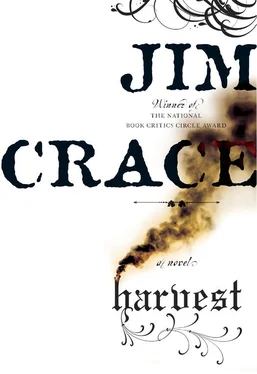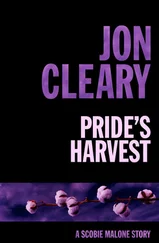I want to believe Master Kent has a stratagem. His accommodations are a plot, a subterfuge ; that word I didn’t know before is proving its worth of late. But equally I fear the evidence of my own eyes — and my ears. There’s laughter, even, from the riders. Their high hats are not shaking but their shoulders are. In that meager distance between the courtyard of the manor house and this open stretch of lane, it could be that, flank on flank and simply with a shared click of the spurs, an allegiance has been forged between these two men, one that recognizes their joint interests, an acknowledgment of how their futures will be shaped, the benefits and moieties. I cannot truly blame my master Kent for that. He has to live. He has to have a roof. He’s lately done his best to intercede on behalf of our two women and our girl. He has secured, I must suppose, a living for me too. And now he’s thinking of himself. Perhaps that was all he meant by his briefest, widest show of eyes when he took leave of me at the maiden elm earlier today. Not a plea or an accusation after all. He was asking for my understanding, warning me of his defeat, showing me how wise it is to toe the line. I study him as he rides off. I’m almost tempted to call out. I want to say, “Not anymore.” But as it happens there’s no need. Perhaps he’s guessed I’m watching him. He knows my fondness for this clover tump. He might have even seen me sitting here. What’s certain is that as these two mounted gentlemen almost disappear behind a screen of elders and a raising wall, my master — the slightly shorter, less round-shouldered one — lifts his right arm as if he’s reaching up for fruit and twists his hand. It isn’t quite a wave. It’s not a farewell either. It’s more like a dancer’s curlicue, an unexpected gaiety, and not the gesture of a beaten man.
I’m standing up by the time the other horses and the other travelers come into view, at last. I do not waste my farewell waves on them. I don’t suppose they’re looking at the village hills. Their heads are down. They do not have the benefit of weighty hats to hang their bodies from. And they’re more laden than the masters. The wounded groom is the first to pass. He sets the pace for all the rest, and it is slow and torturous. He tries his best to sit upright, but every step is juddering. He lifts a bottle to his lips. I’m sure it will be Master Kent’s strongest cut-throat ale, or even better — quicker, that’s to say — some stupefying barley blaze. A few mouthfuls of that every now and then should dull the pain; too many and he’ll topple from his saddle. Two loaded horses follow, though I’m glad to see that little Lizzie Carr is sat on one of them, secured among the luggage like a market goose, a fancy goose in a green cloth wrap. I hope she makes it to a cozy place before our apples bring these horses to their knees. The widow Gosse and Anne Rogers walk at her side, tethered to the panniers with rope. And then the sidemen follow on, again dressed like foot soldiers in matching breeches, jerkins and brimless caps. They are not happy to be walking, I am sure, not happy to have lost their usual mounts to their master’s cousin and the devil’s girl. One of them steps forward every few paces to switch the horses’ flanks. I do not see it now, during this short stretch, but I’m sure he’ll switch the women’s flanks as well. Another carries a long stave. He’s stolen it from us. I recognize its cut. It’s too heavy for a walking stick. I do not want to think what it’s intended for.
My master is too far ahead to know what’s going on behind his back among his charges. Am I to be the only one to witness and know it all, the only one to wonder what this mounted pageant represents? Is that why I’ve been left behind? To watch this spectacle? It’s like a costumed enactment at a fair, a mummers’ show. I used to love them as a boy. I’d want to be the first to name the parts and identify the players from their garb. Today, I’m seeing Privilege, in its high hat. Then comes Suffering: the Guilty and the Innocent, including beasts. Then Malice follows, wielding its great stick. And, afterward, invisibly, Despair is riding its lame horse.
The lane is empty once again. This hilltop is a friendless place, and capped in cloud. I’ve brought the end-of-summer sorrows on myself. They spread their great black wings and cast their peckish shadows over me. The sun’s still shining in the valley but its warmth’s no longer reaching me. It is the middle of the afternoon, late harvesttime. I should be as dry and ripe as barleycorn. Instead, I feel as chilly as a worm. I feel no prouder than a worm. I am almost tempted to run down the hill to that now empty way and join the pageant as it heads off for a town. I’m panicking, not only for myself, but also for the prisoners, and the departed villagers, every one, and for Mr. Quill as well. I have to fight the nightmares. I can’t imagine living here for the coming seasons without someone to love or like, or any neighbor to share my troubles with. I can imagine living there, where they will be, above those smelling, busy, crowd-warmed streets, with Kitty Gosse as my hands-on-belly second wife. I can imagine bringing Lizzie Carr into our rooms and taking care of her. I’d be as loving as her uncle John, until the day that uncle John himself arrives. I can imagine being Master Kent’s town man again, like in those lively days when he was still a bachelor. The prospect is not frightening. It wouldn’t take me long to catch up with that mummers’ show. I could tag on at the end and follow Despair and his dejected mount as … Shame, perhaps. As Servitude. I’d put up with their switches and their staves, so long as I could be with them and not beset by cloud.
Instead, I hold my nerve and let them go forward without me, without the afterthought of Servitude or the extra burden of my Shame. I hurry along the cattle path and down the far side of the hill, into the sunshine again. Here, in warmer light, I dare to slow my step. I want to bide my time and make the most of what remains of this upsetting day. I am not ready to face the choices I must make or even guess what they might be. I do not want to see the manor house or any of the cottages. I do not want to face the pillory. My eyes are not entirely dry just yet. My mood is tumbling again. I’m suffering what Cecily used to call my wilts. But it is a mood that will pass, in my experience, with every step I take into the open and deserted fields. These poisonous and leaden squalls are familiar to me, as bewildering in their coming as they are swift in their going, though lately the wilts have become more frequent. Cecily’s parting is to blame. Without her love, I am an empty pod. I’m mourning her in tiny episodes, and will do, I suppose, until the mourning is complete. That day will never come, I think — and hope. There’s solace in the thought that I will never finish missing her. And I suppose there’s solace in the certainty that I will never finish missing here. I know I will not, cannot, must not, stay.
So I let the grieving have its way, as I escape from Clover Hill. I can allow myself to wallow like a village pig in the mud of my self-pity for a few more steps. I’m prone to that. I’m prone to feeling sorry for myself and feeling all the better for the indulgence. I allow my sadness to run its course, before I raise my head and, forging through a blizzard of thistledown which is falling up from the ground and supported by a breeze too soft for me to feel, I will myself to recognize what country folk are born to recognize, the amity in everything. Our fields are medicine. All days prove good to those that love the open air.
I pass our crest of great shade oaks, their first acorns and their summer leaf-fall cracking underfoot, and reach our flatter and more open ground, hardworking land, as flinty, thin and grizzled as a laborer. Here are pippinjays to keep me silent company. The four or five I see this afternoon are too busy defacing pears and crabs to speak or even notice me. And there are finches in the quicksets as I walk. For the time being, at least, they’re not short of anything to eat. They have the pick and peck of filberts, berries, hips and seeds. The hedges are heavy laden and grinning red with spoils, as if some puck has laid his magic wand upon their branches and ordered them to gem. This is the age of mushrooms too. It’s a mistake to think that, just because the barley’s in, the land has lost its openhandedness. Each weed and tree enjoys a harvest of its own.
Читать дальше












